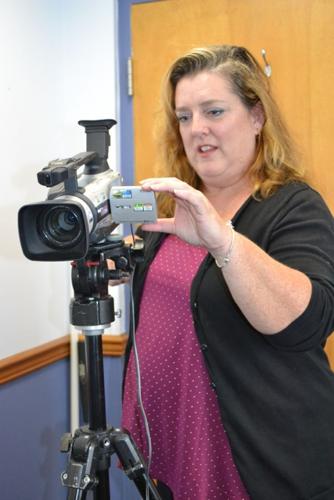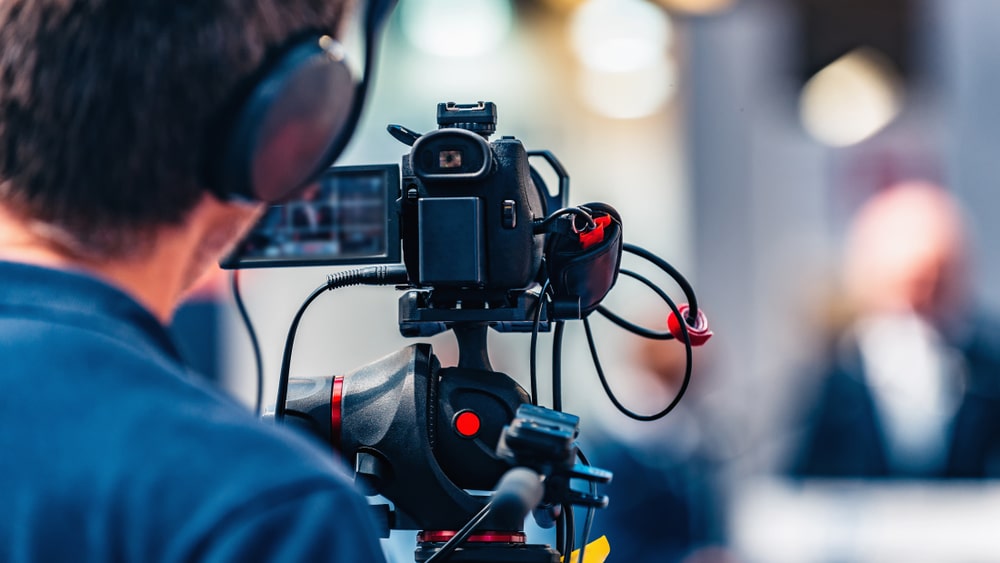Discovering the Different Kinds Of Legal Videographers and Their Distinct Offerings
Legal videographers play an important role in the judicial procedure, each focusing on distinctive elements of court paperwork. Their knowledge ranges from recording witness statements to improving trial discussions. Recognizing the different offerings of these experts can illuminate their payments to legal process. As the complexities of modern-day lawsuits expand, the importance of their functions becomes progressively obvious. What details features do these videographers offer, and how do they impact the outcomes of situations?
Understanding Legal Videography
Legal videography plays an essential role in the judicial process, giving visual paperwork that can enhance the clarity and accuracy of legal process. This specialized area includes capturing video recordings of different legal occasions, such as trials, hearings, and various other significant moments within the legal system. Legal videographers make use of advanced equipment and techniques to ensure top notch video, which can function as critical evidence during litigation.Understanding legal videography calls for recognizing its importance in communicating details in an aesthetic format. The videotaped video can aid juries and judges much better comprehend the context and subtleties of testaments and occasions, potentially influencing decisions. Furthermore, legal videographers need to abide by stringent standards and criteria to keep the stability of the recordings. Their work not only help in maintaining a thorough account of procedures but likewise adds to the general transparency and accountability within the legal structure, making certain that justice is served successfully.
Deposition Videographers
Deposition videographers play an important function in legal procedures by tape-recording witness testaments for future referral. They use specific devices and techniques to guarantee top quality video documentation that accurately captures the subtleties of each deposition. Understanding their approaches and the significance of their work can improve the performance of legal presentations.
Role in Legal Proceedings
While commonly neglected, the role of videographers in legal process is vital, particularly throughout depositions. These experts document witness testaments, recording both spoken and non-verbal cues that can be critical in court. Their recordings act as an exact depiction of the deposition, supplying a reputable referral for attorneys and courts. Videographers assure that the setting is professional, minimizing diversions and sticking to legal standards. They are educated to manage numerous situations, including unexpected interruptions or technical problems, safeguarding the integrity of the tape-recorded material. In addition, the presence of a videographer can hinder evasive habits from witnesses, promoting even more honest reactions. On the whole, their payments greatly improve the clearness and performance of legal proceedings.
Devices and Techniques Utilized
The devices and methods utilized by deposition videographers are crucial for generating high-grade recordings that properly record witness testimonies. Professional-grade cameras, usually with 4K resolution, guarantee clear visuals, while high-fidelity microphones catch audio without distortion. Videographers normally employ tripods for security and illumination tools to boost visibility, specifically in less-than-ideal setups. Techniques such as mounting the witness correctly and preserving suitable angles are crucial for communicating body language and expressions. Many deposition videographers additionally use electronic modifying software to boost the end product, ensuring clearness and coherence. In addition, they may incorporate time-stamping and notes during post-production to help with reference during legal procedures, ultimately providing an extensive and reliable record of the deposition.
Trial Presentation Videographers
Test discussion videographers play a crucial function in court room settings by properly imagining proof and boosting the narration procedure. Making use of sophisticated technology and customized devices, they create compelling presentations that assist juries and judges comprehend intricate info. Their proficiency in efficient storytelling techniques even more elevates the influence of legal disagreements throughout trials.
Duty in Court Room Settings
Regularly, legal videographers play a crucial duty in courtroom setups by recording and offering visual evidence that improves the clearness of legal disagreements. These experts concentrate on documenting witness testimonies, depositions, and essential proof, guaranteeing that the process are properly tape-recorded for future recommendation. Their work not just help in the immediate presentation of cases yet also acts as a useful source during appeals or evaluations. Test discussion videographers thoroughly put together and edit video footage to create compelling visual stories that attorneys can use to persuade courts and courts. By incorporating aesthetic elements right into the test, they considerably contribute to the overall efficiency of the legal process, assisting in a much more informed decision-making environment within the court.
Modern Technology and Tools Utilized
Modern trial presentation videographers count on innovative innovation and specialized tools to successfully catch and existing evidence in the courtroom. High-def electronic cameras are often made use of to ensure that every detail is recorded with quality, while several electronic camera angles can boost the aesthetic story. Videographers often utilize cordless microphones to capture clear audio from witnesses and lawyers, decreasing interruptions. In addition, advanced software application devices allow for real-time modifying and smooth integration of video clip clips, images, and exhibits throughout discussions. Projectors and big screens are typically used to display content in an engaging manner, making sure that jurors and judges can conveniently adhere to the proceedings. This mix of innovation and tools is important for creating impactful courtroom presentations that assist in understanding and retention of info.
Effective Narration Strategies
Catching premium video and sound is simply the starting for test discussion videographers; reliable storytelling strategies play an essential duty in communicating complex legal stories. These specialists utilize various strategies to improve the clearness and influence of the product presented. By carefully structuring the visual and audio elements, they create a systematic flow that guides jurors through the realities of the situation. Utilizing strategies such as thematic framing, sob story, and rational development, they stress bottom lines and bolster the total argument. Furthermore, incorporating visuals, such as diagrams or computer animations, can simplify detailed principles and maintain the audience engaged. Eventually, trial discussion videographers change raw video footage right into compelling tales that resonate with jurors, facilitating notified decision-making in the court.
Video Clip Evidence Specialists
Video proof professionals play a crucial function in the legal process, making sure that aesthetic recordings are accurately captured, preserved, and presented in court. These professionals are trained to handle a range of This Site recording equipment and strategies tailored particularly for legal settings. They concentrate on obtaining top quality recordings that can stand up to examination, adhering to stringent methods to keep the integrity of the evidence.Often involved in the paperwork of criminal offense scenes, depositions, and witness statements, video proof specialists are knowledgeable in developing footage that is both clear and trusted. They are additionally experienced concerning legal standards and needs, making sure that their work conforms with administrative regulations. In addition, these professionals might assist in the post-production process, editing and formatting videos for finest presentation. Their knowledge help resource lawyers in effectively conveying their situations, making the duty of video proof specialists important in the search of justice.
Court room Videographers
While the courtroom commonly functions as the phase for important legal proceedings, courtroom videographers guarantee that these minutes are recorded with precision and clarity. Their key role is to capture all facets of a trial, including witness statements, opening up and shutting statements, and jury reactions. Utilizing specific tools, court videographers assure that audio and video quality fulfill the standards needed for legal documentation.These professionals are proficient at functioning unobtrusively within the court environment, steering via the required protocols and maintaining the honesty of the legal procedure. They frequently team up carefully with attorneys to understand specific demands, ensuring that crucial components are recorded for future reference.Furthermore, courtroom videographers play an important role in preserving the credibility of the proceedings, supplying an important source for charms or additional lawsuits. Their proficiency assurances that all videotaped product acts as a reputable account of the courtroom occasions for all events involved.

Post-Production Services and Editing

After the court procedures are recorded, the emphasis shifts to post-production solutions and editing and enhancing, which play a considerable role in refining the captured product. Legal videographers utilize specialized software to improve video clip quality, ensuring clearness and professionalism. This stage usually consists of shade modification, audio enhancement, and the elimination of any type of extraneous footage, developing a meaningful story that lines up with legal standards.Additionally, videographers might integrate graphics, notes, or subtitles to supply context or highlight critical details. The editing and enhancing process also entails organizing the video chronologically or thematically, making it less complicated for legal teams to reference particular segments during trials or depositions. Additionally, legal videographers often prepare last edits in numerous layouts to fit different systems and usages, guaranteeing ease of access for all stakeholders included. Inevitably, reliable post-production solutions are crucial for creating high-quality legal video clips that support the case available.
Regularly Asked Questions
What Qualifications Should I Seek in a Lawful Videographer?

Exactly How Do Legal Videographers Ensure Video Clip Top Quality and Dependability?
Legal videographers assure video clip top quality and reliability through high-definition tools, cautious illumination, and sound management - legal videographers. They also stick to legal requirements, make use of backup systems, and carry out thorough pre-production preparation to minimize possible problems throughout recordings
What Tools Do Legal Videographers Normally Utilize?
Legal videographers normally use high-def cams, tripods for stability, exterior microphones for clear audio, and illumination devices to improve presence. They might likewise use editing and enhancing software to assure refined and specialist last products for legal process.
The length of time Does the Editing Process Typically Take?
The editing procedure for legal videographers typically differs, varying from a couple of hours to several days. Elements such as video clip intricacy, needed top quality, and particular client demands significantly affect the total time dedication required see page for completion.
Are Legal Videographers Familiar With Court Room Decorum?
Legal videographers typically possess a solid understanding of courtroom rules - legal videographers. Their training typically includes knowledge of etiquette, tools placement, and regard for legal process, guaranteeing their work lines up with the official ambience of the courtroom